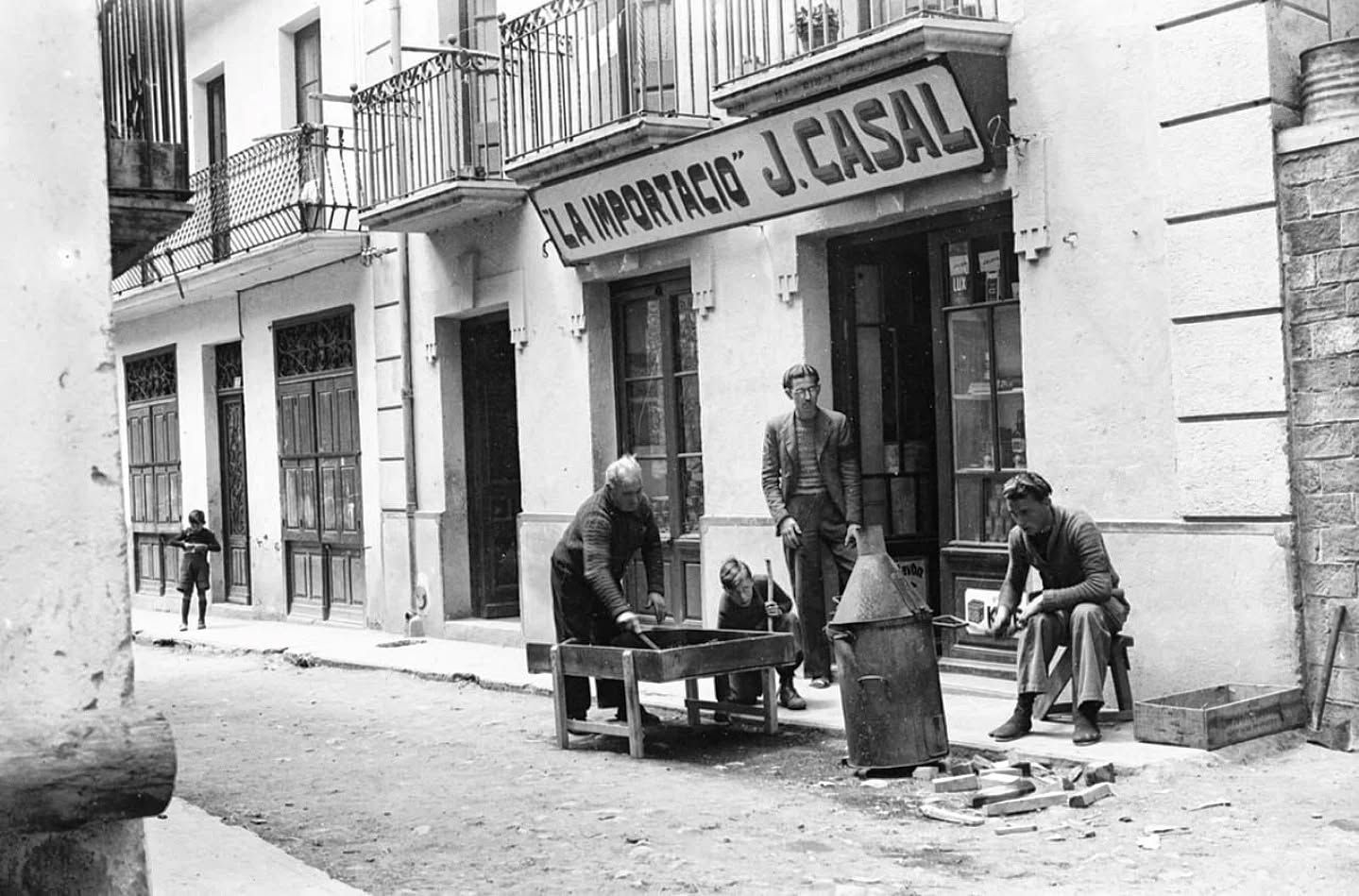Taxation in Andorra: structure, rates and real advantages
Andorra offers a modern, low-tax system with a 10% cap and no inheritance or gift taxes, attracting entrepreneurs and investors.

Reading time: 7 minutes
One of the most attractive tax systems in the world
Andorra’s tax system has undergone a substantial transformation over the past two decades, moving from an almost tax-exempt model to a modern framework aligned with European standards and designed to attract investment and talent.
Today, Andorra offers a competitive and straightforward tax environment, with low rates and a coherent structure that covers personal income, corporate profits, consumption and local taxes.
We recommend reading the article Evolution of the Andorran tax framework to gain a clear and comprehensive view of this process.
Understanding how the main tax pillars work —Personal Income Tax (IRPF), Corporate Income Tax, IGI and local levies— is essential for any entrepreneur or professional considering establishing or operating in the Principality.
➤ For an overview of the different types of tax residence and how they affect taxation, you can read Types of residence in Andorra: active, passive and tax residency (2025).

1️⃣ Personal Income Tax (IRPF)
Regulated by Law 5/2014, structured in two bases:
- General base: employment, business, and rental income.
- Savings base: interests, dividends, capital gains.
The maximum rate is 10%, but reduced effective brackets apply only to the general base:
- Up to €24,000: exempt.
- From €24,001 to €40,000: 5%.
- Above €40,000: 10%.
For the savings base, the first €3,000 are exempt and the remainder is taxed at 10%.
Dividends sourced in Andorra are fully exempt, both for resident individuals and for parent companies, making Andorra a particularly efficient jurisdiction for wealth and asset management.
With Law 5/2023 of 19 January, the system was further streamlined: real-estate capital gains, previously taxed under the former ITP/IPTP regime, were incorporated into Personal Income Tax or Corporate Income Tax depending on the nature of the transferor.
➤ If you would like detailed information about personal income tax, we recommend reading Personal Income Tax (IRPF) in Andorra.
➤ If you want to explore how tax residency is determined and its implications, see the article Tax residency in Andorra: requirements, implications and advantages.

2️⃣Corporate Tax (IS)
Regulated by Law 95/2010, general rate 10%.
Based on accounting profit per the Andorran General Accounting Plan.
Main features:
- Simplified thresholds for SMEs (< €600,000).
- Sworn declaration allowed (< €150,000).
- Transparency and international alignment.
Special regimes:
- Holding regime — exemption for qualified share dividends and gains.
- IP Box regime — for Andorra-developed intangible assets.
Real estate gains are now taxed under Corporate Tax, while the Economic Activities Tax (IRAC) is deductible.
➤ For detailed information about corporate taxation, see Corporate Income Tax in Andorra: rates, special regimes and tax deductions.
➤ For more information on how to set up a company and the related tax incentives, see Setting up a company in Andorra: steps, requirements and benefits.

3️⃣General Indirect Tax (IGI)
Equivalent to VAT, per Law 11/2012.
Main rates:
- 4.5% → general.
- 1% → basic goods.
- 0% → exports.
- 9% → financial services.
In line with European practice, services supplied outside Andorran territory are exempt from IGI and apply the reverse charge mechanism.
The system is fully deductible for businesses and self-employed professionals, ensuring tax neutrality and legal certainty.
➤ To understand how IGI works, we recommend the article VAT in Andorra: how the General Indirect Tax (IGI) works.

4️⃣ Non-Resident Income Tax (IRNR)
The IRNR, governed by Law 94/2010, applies to income generated in Andorra by individuals or legal entities that are not tax residents. Its structure is straightforward and broadly aligned with the Spanish model.
The main taxable items include:
- services and economic activities carried out in Andorra (10%)
- employment income when the work is physically performed in the country
- rental income from property located in Andorra, with an automatic 20% reduction (effective rate: 8%)
- gains from real-estate transfers, incorporated into the system following the 2023 reform (Law 5/2023), taxed at 10% or 15% if the holding period is under two years
By contrast, income from movable capital (interest, dividends, investment funds, savings insurance) is not subject to IRNR, which strengthens Andorra’s appeal for international investors.
The tax also distinguishes between cases with or without a permanent establishment (PE): without a PE, taxation is usually applied via withholding; with a PE, the regime aligns with Corporate Income Tax.
➤ For a complete overview, you can refer to “The Non-Resident Income Tax (NRIT / IRNR) in Andorra”.
5️⃣General Tax Framework Law (LBOT)
Although it is not a tax, this law governs the relationship between taxpayers and the administration. Law 21/2014 of 16 October forms the legal backbone of Andorra’s tax system.
It sets out the principles of legality, proportionality, economic capacity and legal certainty, and governs the procedures for assessment, inspection and appeals.
Its entry into force strengthened the professionalisation of the tax system, providing predictability and safeguards for both taxpayers and the Administration.
6️⃣Local taxation and communal charges
In addition to the IRAC, the local councils manage several communal taxes:
- Foc i lloc, an annual fee linked to residence or property ownership
- the urban rental tax, applied to rental income (typically below 3%); for further insight, ➤ see “Rental tax in Andorra: which rates does each parish apply?”
- taxes relating to construction works, hygiene or business openings, depending on the parish
- the property tax, which rarely exceeds €100 per year; ➤ details can be found in “Property tax in Andorra: what it is and how it is calculated in each parish”
Although modest in amount, these taxes reflect the traditional bond with the territory and fund essential communal services.
To understand the structure of the country, ➤ the article “The parishes of Andorra: structure, functions and territorial features” offers helpful context.

7️⃣Inheritance, Gifts and Wealth
Andorra does not levy inheritance or gift taxes, setting it apart from most European countries.
Gifts are fully exempt between any individuals, regardless of their degree of relationship, although proper documentation is required for anti–money laundering compliance and source-of-funds verification.
However, this absence of taxation does not eliminate potential liabilities abroad: assets located outside Andorra may be subject to inheritance or gift taxes in the country where they are situated, depending on the applicable local legislation.
For a broader perspective, consult “Wealth tax in Europe: where it exists and why Andorra is an exception”.
8️⃣Taxation of specific operations
Despite the main tax categories presented above, some types of income frequently raise questions:
- financial income, examined in “How financial income is taxed in Andorra”
- real-estate taxation — purchase, rental or sale: due to its complexity and additional requirements such as foreign investment authorisation, we recommend ➤ “Real-estate taxation in Andorra: a complete guide to buying, renting and selling with confidence”
- real-estate capital gains, explored in “How real-estate capital gains are taxed in Andorra”
9️⃣ Other essential elements
Beyond the main tax structures, there are other essential elements that have a direct impact on Andorra’s tax framework. The most relevant are outlined below.
🔹 Double Taxation Agreements (DTAs)
These agreements are crucial to understanding Andorra’s international tax framework. They prevent double taxation and apply to:
- real-estate income
- employment income and pensions
- business profits
- dividends
- interest
- royalties
- capital gains
For a clear explanation of how these mechanisms operate, ➤ see “Double taxation agreements: the key to understanding where international income is really taxed”.
For a complete list of countries with DTAs in force, ➤ consult “Double Taxation Agreements (DTAs) in Andorra”.
🔹 Customs regime and relationship with the European Union
Andorra has maintained a Customs Union Agreement with the European Economic Community since 1990, applicable to industrial products.
The Andorran Customs Code 2025 incorporates the standards of Regulation (EU) 952/2013, strengthening traceability, control and procedural simplification.
➤ A detailed explanation is available in “Customs agreement between Andorra and the European Union: origins and foundations of an essential relationship”.
For a wider perspective on Andorra’s geopolitical evolution, the article “Andorra’s international evolution: from tradition to a global presence” provides valuable context.
🔹 Other international agreements
Andorra has concluded numerous sector-specific European agreements, such as the Monetary Agreement. They do not have a direct fiscal impact, but it is essential to monitor their evolution. Our article section provides regular updates.
Conclusion
Andorra’s tax model blends clarity, stability, and efficiency.
With a 10% maximum rate, 4.5% IGI, and no inheritance or gift tax, it offers a secure and competitive framework for entrepreneurs and investors.
If you found this article helpful, we recommend reading Living and working in Andorra: what you need to know before relocating and Evolution of Andorra’s fiscal framework, which will give you a clearer view of Andorra’s tax environment.
If you are looking for a broader and more comprehensive perspective on Andorra’s tax system, we recommend the article Taxation in Andorra: a practical guide to understanding taxes, obligations and real risks.
📞Do you need help or have any questions?
If you still have questions about Andorran taxation, how it interacts with foreign tax systems, the application of double tax treaties, tax residency conflicts or any other national or international tax matter, you can book a meeting or contact us through our contact form.
Lastly, we encourage you to explore our publications section, where you will find articles covering everything you need to know about Andorra and international taxation to make well-informed decisions.
Last revision date: January 2026

Technical Author: Albert Contel



